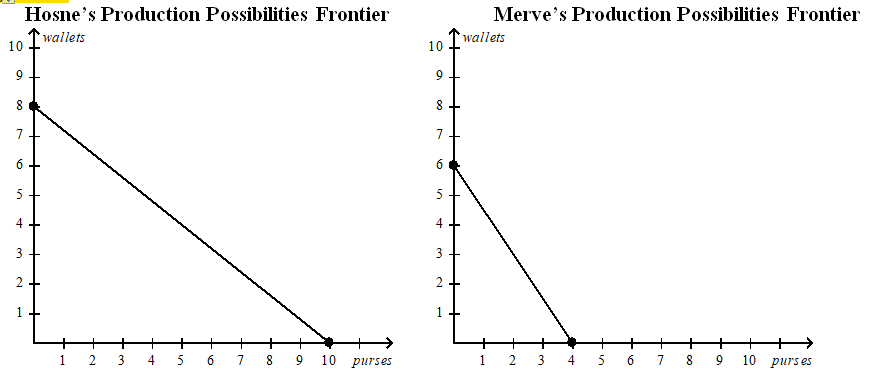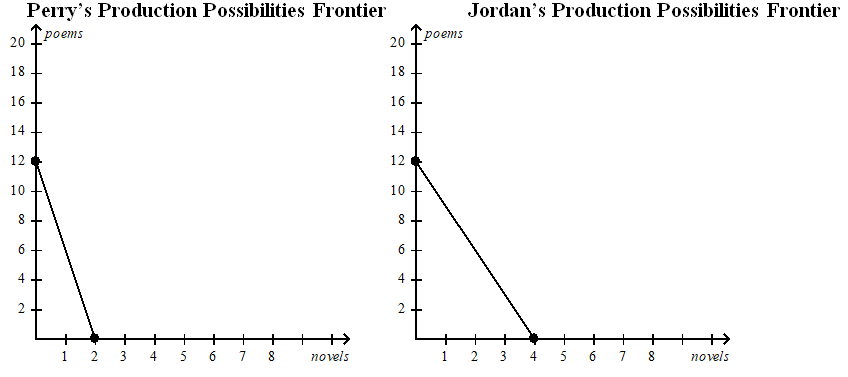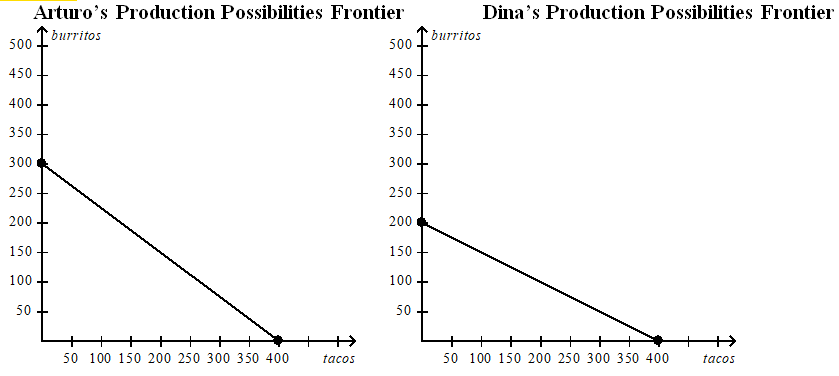Exam 3: Interdependence and the Gains from Trade.
Exam 1: Ten Principles of Economics.349 Questions
Exam 2: Thinking Like an Economist.535 Questions
Exam 3: Interdependence and the Gains from Trade.443 Questions
Exam 4: The Market Forces of Supply and Demand.571 Questions
Exam 5: Elasticity and Its Application510 Questions
Exam 6: Supply, Demand, And Government Policies.557 Questions
Exam 7: Consumers, Producers, and the Efficiency of Markets.460 Questions
Exam 8: Application: The Costs of Taxation.424 Questions
Exam 9: Application: International Trade.410 Questions
Exam 10: Externalities.441 Questions
Exam 11: Public Goods and Common Resources.349 Questions
Exam 12: The Design of the Tax System.478 Questions
Exam 13: The Costs of Production.533 Questions
Exam 14: Firms in Competitive Markets.478 Questions
Exam 15: Monopoly.526 Questions
Exam 16: Monopolistic Competition.497 Questions
Exam 17: Oligopoly.410 Questions
Exam 18: The Market For the Factors of Production.463 Questions
Exam 19: Earnings and Discrimination.398 Questions
Exam 20: Income Inequality and Poverty.374 Questions
Exam 21: The Theory of Consumer Choice.462 Questions
Exam 22: Frontiers in Microeconomics.353 Questions
Select questions type
Table 3-2
Assume that Aruba and Iceland can switch between producing coolers and producing radios at a constant rate.
 -Refer to Table 3-2.Aruba and Iceland would not be able to gain from trade if Iceland's opportunity cost of one radio changed to
-Refer to Table 3-2.Aruba and Iceland would not be able to gain from trade if Iceland's opportunity cost of one radio changed to
(Multiple Choice)
4.9/5  (31)
(31)
Table 3-11
Assume that Falda and Varick can switch between producing wheat and producing cloth at a constant rate.
 -Refer to Table 3-11.Falda's opportunity cost of one yard of cloth is
-Refer to Table 3-11.Falda's opportunity cost of one yard of cloth is
(Multiple Choice)
5.0/5  (35)
(35)
Table 3-5
Assume that England and Spain can switch between producing cheese and producing bread at a constant rate.
 -Refer to Table 3-5.Without trade,England produced and consumed 32 units of cheese and 2 units of bread and Spain produced and consumed 6 units of cheese and 2 units of bread.Then,each country agreed to specialize in the production of the good in which it has a comparative advantage and trade 7 units of cheese for 2.5 units of bread.As a result,England gained
-Refer to Table 3-5.Without trade,England produced and consumed 32 units of cheese and 2 units of bread and Spain produced and consumed 6 units of cheese and 2 units of bread.Then,each country agreed to specialize in the production of the good in which it has a comparative advantage and trade 7 units of cheese for 2.5 units of bread.As a result,England gained
(Multiple Choice)
4.8/5  (33)
(33)
Suppose that in one hour Dewey can produce either 10 bushels of corn or 20 yards of cloth.Dewey's opportunity cost of producing one bushel of corn is 1/2 yard of cloth.
(True/False)
5.0/5  (38)
(38)
Table 3-2
Assume that Aruba and Iceland can switch between producing coolers and producing radios at a constant rate.
 -Refer to Table 3-2.Aruba should specialize in the production of
-Refer to Table 3-2.Aruba should specialize in the production of
(Multiple Choice)
4.8/5  (32)
(32)
Figure 3-5
 -Refer to Figure 3-5.Hosne's opportunity cost of one purse is
-Refer to Figure 3-5.Hosne's opportunity cost of one purse is
(Multiple Choice)
4.9/5  (26)
(26)
Ben bakes bread and Shawna knits sweaters.Ben and Shawna both like to eat bread and wear sweaters.In which of the following cases is it impossible for both Ben and Shawna to benefit from trade?
(Multiple Choice)
4.9/5  (21)
(21)
Table 3-5
Assume that England and Spain can switch between producing cheese and producing bread at a constant rate.
 -Refer to Table 3-5.England has a comparative advantage in the production of
-Refer to Table 3-5.England has a comparative advantage in the production of
(Multiple Choice)
4.8/5  (45)
(45)
When each person specializes in producing the good in which he or she has a comparative advantage,total production in the economy
(Multiple Choice)
4.8/5  (30)
(30)
An economy can produce at any point on or inside its production possibilities frontier,but it cannot produce at points outside its production possibilities frontier.
(True/False)
4.8/5  (33)
(33)
When an economist points out that you and millions of other people are interdependent,he or she is referring to the fact that we all
(Multiple Choice)
4.8/5  (29)
(29)
Figure 3-4
 -Refer to Figure 3-4.Which of the following is not correct?
-Refer to Figure 3-4.Which of the following is not correct?
(Multiple Choice)
4.9/5  (25)
(25)
An economy's production possibilities frontier is also its consumption possibilities frontier
(Multiple Choice)
5.0/5  (34)
(34)
Both Bill and Mary produce t-shirts and hats.If Bill's opportunity cost of 1 t-shirt is 4 hats and Mary's opportunity cost of 1 t-shirt is 3 hats,then
(Multiple Choice)
4.8/5  (41)
(41)
Suppose Jim and Tom can both produce baseball bats.If Jim's opportunity cost of producing baseball bats is lower than Tom's opportunity cost of producing baseball bats,then
(Multiple Choice)
4.8/5  (40)
(40)
Some countries win in international trade,while other countries lose.
(True/False)
4.8/5  (33)
(33)
Figure 3-3
 -Refer to Figure 3-3.Arturo has an absolute advantage in the production of
-Refer to Figure 3-3.Arturo has an absolute advantage in the production of
(Multiple Choice)
4.7/5  (45)
(45)
Table 3-3
Assume that Zimbabwe and Portugal can switch between producing toothbrushes and producing hairbrushes at a constant rate.
 -Refer to Table 3-3.Suppose Zimbabwe decides to increase its production of toothbrushes by 10.What is the opportunity cost of this decision?
-Refer to Table 3-3.Suppose Zimbabwe decides to increase its production of toothbrushes by 10.What is the opportunity cost of this decision?
(Multiple Choice)
4.8/5  (29)
(29)
Showing 401 - 420 of 443
Filters
- Essay(0)
- Multiple Choice(0)
- Short Answer(0)
- True False(0)
- Matching(0)